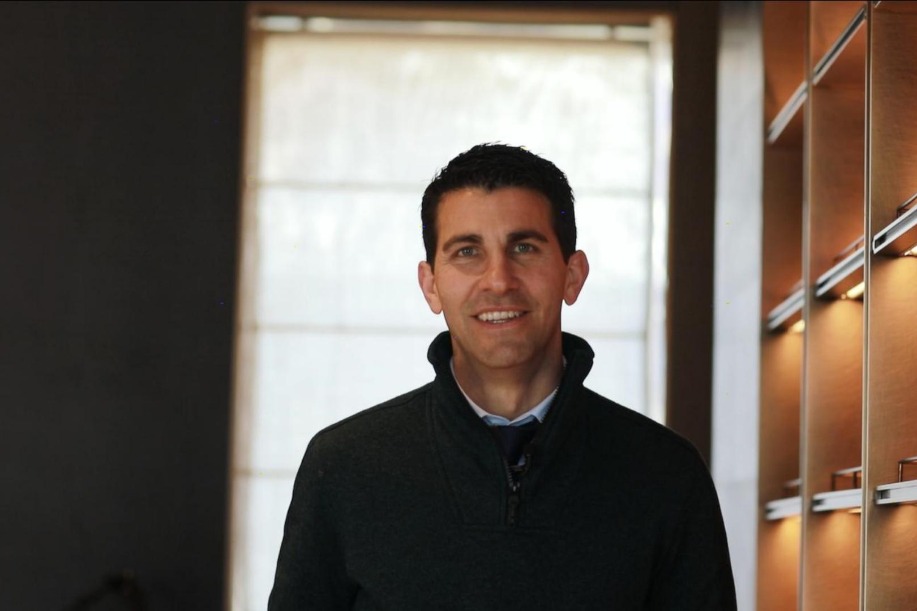Grass is greener on the other side

| Chinese milk scandals affect the dairy industry worldwide, especially baby formula makers, distributors and sellers. Provided to China Daily |
Chinese milk scandals send genetics experts into other pastures
Scandals in China over milk in recent years have taken a heavy toll not only on the nerves of young parents, but also on dairy farms and dairy producers. Whenever the quality of the country's milk has been questioned, trust in the entire dairy industry has been undermined.
John Schouten says this increased awareness among Chinese consumers and the government has opened up many opportunities for foreign dairy companies.
Schouten is CEO of World Wide Sires, a US cattle genetics marketing organization that represents most US artificial insemination cooperatives. Founded in 1971, it is owned by Select Sires Inc and Accelerated Genetics, said to be the world's largest and second-largest artificial insemination companies. World Wide Sires says that in 2010 it sold more than 16.5 million doses in the United States and has customers in more than 70 countries. It has successfully bred well-known breeds such as Holstein milk cattle.
"It is unfortunate that China has had the tainted milk scandal, but that has also educated Chinese people about the importance of milk quality," Schouten says.
Chinese milk scandals affect the dairy industry worldwide, especially baby formula makers, distributors and sellers, he says.
"Chinese people who travel abroad buy baby formula in New Zealand, Australia and Europe, and China has become the top importer of several major dairy products suppliers."
Since 1995, World Wide Sires has formed business ties with major bull stations and dairy cattle improvement centers in Beijing, Shanghai, and Inner Mongolia, and with other big dairy farms.
The price of imported frozen semen is several times higher than its domestic counterpart, and the company aims at the high-end market in China.
Apart from the US, China's dairy industry works with other big producers such as Australia, Canada, Europe, New Zealand and Uruguay, says Gu Jicheng, secretary-general of the China Dairy Association.
Business between China and Europe includes importing dairy products, good-quality hay, milking equipment and dairy product processing technologies, Gu says.

This year the Chinese dairy producer Yili has teamed up with Wageningen University in the Netherlands, which specializes in bioscience, to establish the Yili European Research and Development Center.
Chen Yu, an analyst with the Ministry of Agriculture, says the Chinese dairy industry has reached a point where it needs foreign technologies and know-how to make progress.
"Previously, all the industry wanted to do was grow, but now it needs to change its pattern of growth by improving efficiency, building environmentally friendly farms and maintaining quality in its dairy products. It's time we drew on resources in Europe, the US and other countries to get technological support and management experience."
The China Dairy Association says only about 40 percent of farms have more than 100 head of breeding stock, others are mostly small farms, and some family farms have just a few head of cattle.
There are about 13 million dairy cattle across the country, with annual yield of about 35 million tons of milk, Gu says. In Europe, where consumption of dairy products is much greater, farms are usually a lot bigger.
Wang Zeqi of Hebei Langfang agricultural bureau, who has hands-on experience in raising cattle, says Chinese dairy farming compares poorly with its European counterpart.
After traveling to Germany recently, he reported that the average yield of milk per head of cattle is between eight and 10 tons a year, compared with about five tons in China.
"Many Chinese farm owners, especially the small ones, only care about whether the number of cattle is increasing, and don't care about their health. Some farms have to put down 30 percent of cattle because of mastitis, but the rate in Germany is less than 20 percent and more for reasons other than disease.
"With breeds that are not optimal, some small-farm owners cannot make ends meet producing milk, and many farms are forced to close."
Gu of the dairy association says improving cattle genetics is the basis of good cattle and good dairy products.
"As the Chinese dairy industry has evolved, we have been trying to improve cattle genes, and bringing in good breeds from overseas is an important apart of that."
After decades of improvement, Gu says, China has developed some good dairy-meat dual-purpose cattle, and that has boosted dairy farm incomes.
"Most farmers have now realized that breed is crucial because it affects not only the quality of milk, but the yield as well."
Most big dairy farms in China have formed ties with foreign artificial insemination companies, Gu says, adding that big companies such as Sanyuan in Beijing and Bright in Shanghai tend to have more fine-breed cows.
In the dairy industry, milk is described as "white blood". For every 500 kg of blood, a cow can generate 1 kg of milk.
Although the formula of milk does not differ very much, milk yields and the health of cattle health can vary widely, experts say. Because of outdated management and poor sanitary conditions, cattle on many domestic farms suffer mastitis, which can seriously compromise the quality of milk.
"Being small is not a problem," Gu says. "Australia also operates relatively small farms with fewer than 100 cattle, but the dairy products are very competitive, so it is good breeds and modern farm management that really count. The quality of fodder also needs to be improved."
World Wide Sires has also sensed this opportunity. It has set up a training center in Beijing providing calf care, milk quality control, vaccinations, foot care and other training for farms and dairy processors.
Apart from three to four staff to help the farms use their products, the company holds seminars on cattle-raising technologies.
"Selling products and training services are now our parallel priorities," Schouten says.
He is highly confident about the Chinese market, he says. "The government has made strict laws on food security, and the dairy companies are well aware of the consequences if they don't abide by them. I can see they are trying.
"In the past few years, China has been one of our fastest-growing markets. So long as the government closely regulates the industry I see no reason why the Chinese dairy industry cannot be a very strong one."
Contact the writers through wangchao@chinadaily.com.cn
(China Daily European Weekly 05/30/2014 page23)
Today's Top News
- Xi congratulates Yoweri Museveni on re-election as president of Uganda
- Senior military officials under investigation: Defense Ministry
- Systematic approach sees return of clear waters to the Yangtze River
- IP protection for new fields to improve
- Draft rules define premade dishes in consumer interest
- Xi greets To Lam on election as Vietnam party leader































